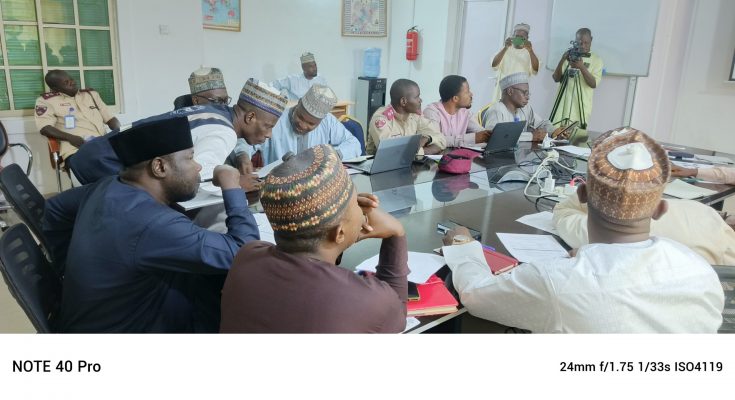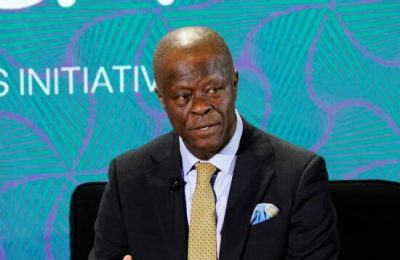Bauchi State Commissioner for Health, Dr. Sani Mohammed Dambam, has commended President Bola Ahmed Tinubu for approving the establishment of the National Emergency Medical and Ambulance Services (NEMSAS), aimed at ensuring effective and efficient healthcare delivery across the country.
The Commissioner spoke during a stakeholders’ engagement meeting on the World Bank-assisted Rural Emergency Services and Maternal Transport (RESMAT) Programme, which impacts 15 states, organized by NEMSAS at the Ministry of Health in Bauchi on Friday.
Represented by Dr. Suleiman Aliyu, Director of Medical Services at the Ministry, the Commissioner said, “It may be recalled that last Tuesday, the Coordinating Minister inaugurated the Emergency Medical Services and Ambulance System here in this Ministry. In line with this, NEMSAS officials are here to discuss how to kick-start the process.”

The Commissioner added, “We sincerely appreciate the efforts of Mr. President and the Coordinating Minister. This is one of the best interventions that will positively impact our rural population.”
He further stated, “Anyone promising free medical services everywhere may not be entirely realistic. However, with this system, the impact will be significant.”
ALSO READ: Support us to protect lives, properties, new NSCDC Commandant urges Ebonyi residents
According to him, “From the moment an accident victim, whether medical, surgical, or critical, is picked up until they reach care within the next 48 hours, all services will be provided at no cost. I don’t think there’s a term more fitting than the ‘golden period’ to describe this intervention.”

He emphasized, “Taking over the responsibility of the ‘golden period’ is fantastic, as unattended emergencies can lead to fatal outcomes or lifelong consequences, though ultimately, life is in God’s hands.”
The Commissioner expressed gratitude, saying, “We appreciate these monumental strides and welcome you to Bauchi. I assure you that we will listen, collaborate, and fully implement any guidance you provide. Thank you, and may God bless you all.”
During the meeting, it was observed that despite Nigeria’s commitment to achieving the Sustainable Development Goals (SDGs), particularly Goal 3 (Good Health and Well-being), significant healthcare disparities remain, especially in rural areas.
Head of Claims Management (NEMSAS), Nasir Nuhu Yakubu, noted, “This gap is most pronounced in maternal and child health and emergency services, where rural areas experience disproportionately high maternal mortality rates and challenges in accessing timely emergency interventions.”
He explained that NEMSAS is the operational arm of Emergency Medical Treatment (EMT) and was established to address a critical healthcare gap by providing emergency medical services and transportation.
Yakubu stressed, “This system is designed to provide 24/7 emergency services to citizens in need, anywhere in the state, at no cost to the patient for the first 48 hours. It includes a fleet of ambulances equipped for different levels of support, such as Advanced Life Support (ALS), Basic Life Support (BLS), and tricycle ambulances from both the public and private sectors.”
He added, “The program will be implemented at the state level through State Emergency Medical Service and Ambulance System (SEMSAS), led by a Chairman. NEMSAS will roll out ambulance services and emergency treatment nationwide in phases. FCT, Anambra, Yobe, and Osun states have already commenced operations.”
“As part of President Tinubu’s push towards achieving Universal Health Coverage, this vision will be realized through the Sector Wide Approach Programme (SWAP), themed the Nigeria Health Sector Renewal Investment Initiative, led by the Coordinating Minister of Health, Prof. Muhammad Ali Pate.”
Yakubu highlighted, “A key part of this strategy is ensuring effective and timely emergency transport for rural populations, who suffer the most from limited healthcare access.”
He continued, “Nigeria aims to bridge emergency service gaps, particularly reducing preventable maternal and under-five mortalities, through the Rural Emergency Service and Maternal Transport Programme.”
He added, “Through the IMPACT Project, the World Bank is supporting 15 states with EMS assets, capacity, and financial resources to jumpstart rural emergency services in these critical areas.”
The goal is to improve access to efficient rural emergency services and maternal transportation for 1.7 million pregnant women in 15 selected states by December 2025.
The specific objectives include generating demand through coordinated advocacy and strengthening NEMSAS governance to ensure effective delivery of program goals. Additionally, the program aims to equip frontline rural health workers, tricycle operators, and other providers to ensure timely, quality emergency services and maternal transport. It also seeks to provide suitable emergency transportation, such as tricycles and boat ambulances.
The program will optimize RESMAT services through the National Integrated Emergency Medical Service Software.
Dr. Lawal Ahmadu Kuki, a resource person from NEMSAS, explained that initially, NEMSAS operated with two gateways. Now, there are four gateways: two with the National Primary Healthcare Development Agency and the National Health Insurance Agency, while the Emergency Medical Treatment Gateway and the National Public Health Emergency Gateway are managed by the Nigerian Centre for Disease Control (NCDC) under the Coordinating Minister of Health and Social Welfare.
He explained, “The program structure includes the Coordinating Minister, the Permanent Secretary, and the National Emergency Treatment Committee, led by a National Coordinator who oversees various departments, including Finance and Operations, within SEMSAS.”
Dr. Kuki emphasized, “We are transitioning NEMSAS operations from urban to rural settings. In this presentation, I will focus on rural emergency services and maternal transport. This engagement with stakeholders will identify gaps and challenges in implementing this program.”
He concluded, “We will consider the unique characteristics of each state and build on existing systems to implement Rural Emergency Services and Maternal Transport. This outline serves as a reminder of our commitment.”







